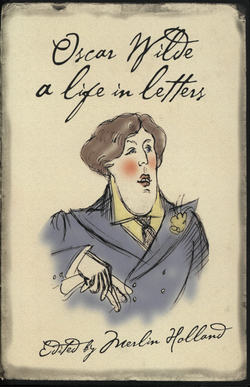Читать книгу Oscar Wilde: A Life in Letters - Оскар Уайльд, Merlin Holland, F. H. Cornish - Страница 93
To the Rev. J. Page Hopps
Оглавление14 January 1885 [London]
Dear Mr Hopps, I am very sorry to say that I am confined to the house with a severe cold, caught by lecturing in a Lincolnshire snowstorm, and am not allowed by my doctor to travel. It is with much regret that I find myself unable to join in the meeting tomorrow, as I sympathise most strongly with the object in question. The present style of burying and sorrowing for the dead seems to me to make grief grotesque, and to turn mourning to a mockery. Any reform you can bring about in these customs would be of value quite inestimable. The present ostentation and extravagance of burial rites seems to me to harmonise but ill with the real feeling of those at the doors of whose house the Angel of Death has knocked. The ceremony by which we part from those whom we have loved should not merely be noble in its meaning, but simple in its sincerity. The funeral of Ophelia does not seem to me ‘a maimed rite’ when one thinks of the flowers strewn on her grave. I regret exceedingly that I cannot hear the actual suggestions on the matter which will be made at your meeting. I have always been of opinion that the coffin should be privately conveyed at night-time to the churchyard chapel, and that there the mourners should next day meet. By these means the public procession through the streets would be avoided; and the publicity of funerals is surely the real cause of their expense. As regards dress, I consider that white and violet should be recognised as mourning, and not black merely, particularly in the case of children. The habit of bringing flowers to the grave is now almost universal, and is a custom beautiful in its symbolism; but I cannot help thinking that the elaborate and expensive designs made by the florist are often far less lovely than a few flowers held loose in the hand. There are many other points on which I should have liked to listen, and one point on which I had hoped to have the privilege of speaking. I mean the expression of sorrow in art. The urns, pyramids and sham sarcophagi—ugly legacies from the eighteenth century to us—are meaningless as long as we do not burn or embalm our dead. If we are to have funeral memorials at all, far better models are to be found in the beautiful crosses of Ireland, such as the cross at Monasterboice, or in the delicate bas-reliefs on Greek tombs. Above all, such art, if we are to have it, should concern itself more with the living than the dead—should be rather a noble symbol for the guiding of life than an idle panegyric on those who are gone. If a man needs an elaborate tombstone in order to remain in the memory of his country, it is clear that his living at all was an act of absolute superfluity. Keats’s grave is a hillock of green grass with a plain headstone, and is to me the holiest place in Rome. There is in Westminster Abbey a periwigged admiral in a nightgown hurried off to heaven by two howling cherubs, which is one of the best examples I know of ostentatious obscurity. Pray offer to the committee of the society my sincere regrets at my inability to be present, and my sincere wishes for the success of your movement. Believe me, sincerely yours
OSCAR WILDE
Wilde’s relationship with Whistler, which had started when he came to London in 18J9, was always a stormy one; Whistler generally accusing Wilde of plagiarism and appropriating his views on art. It passed through good-natured banter while Wilde was in America but started to become acrimonious after Wilde reviewed Whistler’s ‘Ten O’Clock’ lecture on 20 February. Whistler’s hostility finally brought it to an end in 1890, though Wilde managed to have the last word by publishing ‘The Critic as Artist’ six months after their last public exchange (see pp. 121–2).
